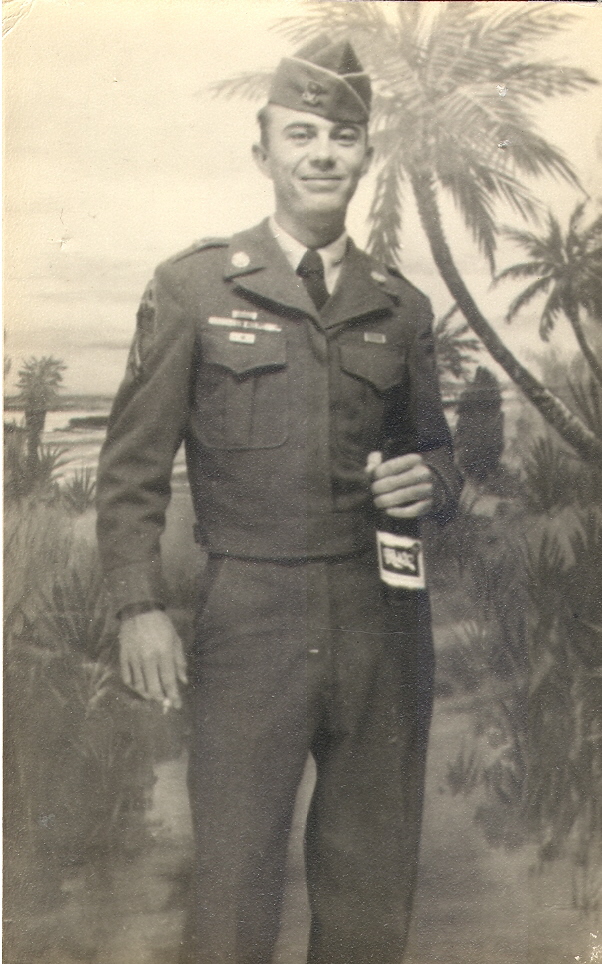TRANSCRIPTION
What is your best childhood memory?
When we lived on Paso Hondo Street I had a lot of friends and we played together a lot.
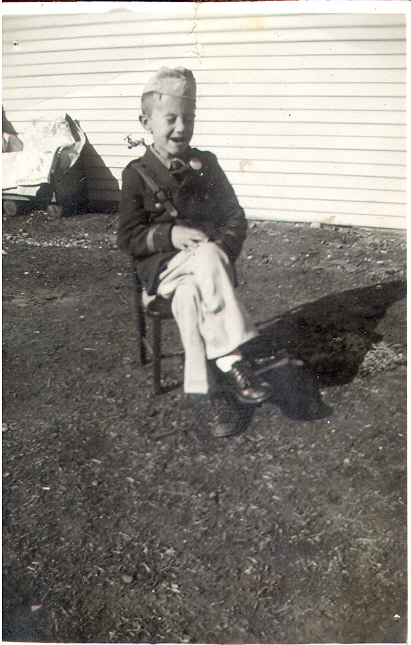
How was your life growing up in San Antonio, Texas?
Very good.
What are the biggest changes you remember about San Antonio from your youth until now?
It's growing so fast. When I was young, there were no big markets, big grocery stores or shopping malls. Everything you had to do, you had to go downtown. If you had to go shopping, to the courthouse, or to the bank; whatever it was you had to go downtown. There were only little mom and pop stores in the neighborhood but nothing real big. Things were less accessible back then as compared to today.
What did you do for fun when you were younger?
I liked to go to the movies when me and Grandma (wife, Leatrice) were dating. We used to go to a drive-in movie theatre on Goliad Rd. right across the street from Floyd's, it was called Park Air. I also liked going riding, shopping, having picnics at the park, and going to church. I didn't like going dancing because I can't dance. Back then there was always family parties, especially on the weekends at my in-laws' house, those were a lot of fun.
What kind of jobs did you have growing up
Well, I started out working at the grocery stores in summertime. I worked at Handy Andy, H.E.B, and Pigley Wigley. I was a sacker, checker, stock worker, and I loaded trucks; I did a little bit of everything. Back in those days they had the old cash registers, they didn't have the computer ones like they have now. So you had to know how to give back change yourself; the machine didn't tell you how much change it was, you had to figure it out. I was fourteen when I started working; I got my Social Security card and my Driver's License when I was fourteen. After the Army, I worked at Telford Store Fixtures for about 15-20 years and I recently retired from the San Antonio Zoo, I worked there for another 15 years. I also worked as a security guard at Pioneer Company for a short period of time, maybe six months, but got laid off.
How would you spend your earned money?
One of the things I invested my money on when I was younger was my car. I paid cash for it, it was $1,495. The car was a 1964 Chevrolet Impala, it was a beautiful turquoise and white color. See, things weren't so expensive back then; life was much better back then than it is now, there wasn't all of this inflation. I was still too young when I got out (of the Army), I was twenty years old. I had been saving money for a couple of years to buy the car. When I went to go buy it, the guy didn't want to accept my check, it was at some auto dealer there on Broadway Street. Boy my daddy was so mad, he said "Look, he went three years in the Army and did all kinds of things, and then he comes over here and you say he can't buy a car!" But then the guy had a talk with his boss and finally let me have it. Also, when I would get paid I would take my family to the beach almost every weekend, especially during summertime. When I would come home from work, Grandma (wife, Leatrice) would have everything packed for us and the kids: clothes, toys, and groceries so we could have bar-b-que's over there.

How did you meet Grandma (wife)?
I've known Grandma (Leatrice Joy Rouse) my whole life; we grew up together. We lived in the same neighborhood our entire lives. The block that I lived on was mostly boys and the block she lived on was mostly girls. We would sit out there at the corner, and one of my friends lived there on the corner too so we would be watching the girls from the other block over there. We would sit there and whistle to some of the girls. See at that time, when me and Grandma were growing up together, it was during World War II and everything was rationed. There were a lot of things that you couldn't get. You couldn't even get bubble gum. Everything was limited for the War effort. We had what were called tokens, they're about as big as a dime, and they looked like little stamps. The government would send you a little book and you could only get so much sugar, so much gas, so many pairs of shoes, and tires to the car. You couldn't just go and get a new tire, you had to take the old tire down and show it to them, and then they would decide whether you needed a new one or not. There wasn't any cars built from 1941-1945. They didn't make any new cars because all of the companies went to making stuff for the military so we could win the War. Even the City of San Antonio or the Post Office could get new vehicles or nothing. They drove their old ones and fixed them. And everything we used to do back then when we were younger, we used to ride bicycles a lot. Boy I used to go all kinds of places on bicycles. When the War broke out (World War II), we used to sit on the corner of our street and watch the military vehicles and the military go down our street in convoys. We used to sit there for hours just watching them pass by. There was so much military traffic that people couldn't even park from the entrance of East Commerce Street all the way to the entrance of Fort Sam Houston.
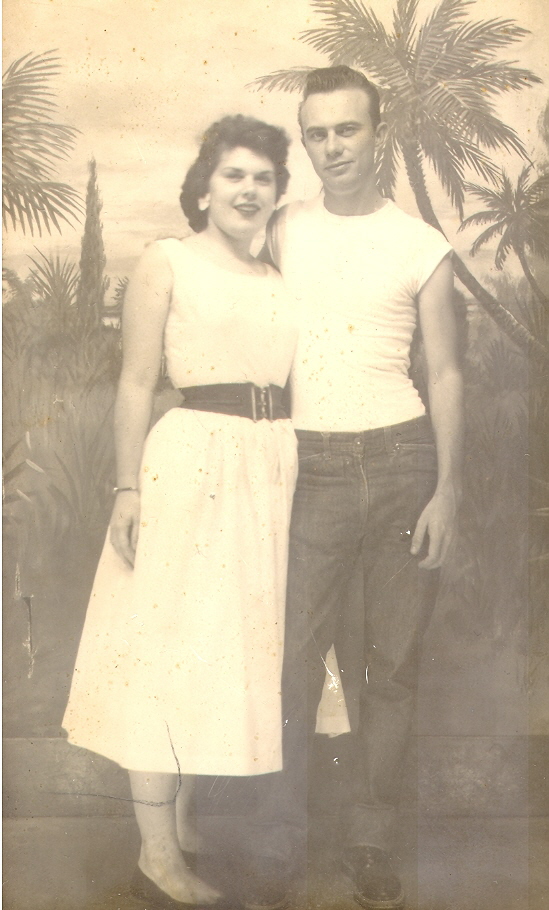
Were you enthusiastic about joining the military? If so, what were you looking forward to?
I was really looking forward to free travel, since you didn't have to pay for anything. It was just patriotic to that. My family goes way back to about World War I; Padalecki's have been in the military all that time. I felt that it was my personal duty to help serve my country. Another thing that got me to join was that I had so many cousins and uncles who were in the war and their sacrifice impressed me. They used to come down to my house a lot when I lived on Paso Hondo Street. My cousin Edward Pieniazek served during World War II but got killed in combat. Before my cousin Edward went off to war we had a party for him at my house, which was the last time I saw him, and also when he left on the train. Later on my momma told me that he got killed in war. And back in those days you didn't have any of this counseling like you have now, you just had to take it in and deal with it on your own. The most traumatic thing that I had to deal with was that I wasn't going to see him anymore. When he used to live in the country, I used to stay with him and follow him around. We were really close, which is why I have all of these pictures of him now. They never did find his body; all we had left were his belonging, medals and awards.
Where was he killed?
If you're familiar with World War II, this Anzio beachhead, in Italy where they made an amphibious landing. When they were going back into Europe to chase the Germans and Italians out, someplace in there is where he got lost. He either got blown up into pieces or the landing boat that he went in sunk or got shot at or something. We don't know what it was, they (the military) don't even know, or they just won't say what happened, sometimes the military does that.
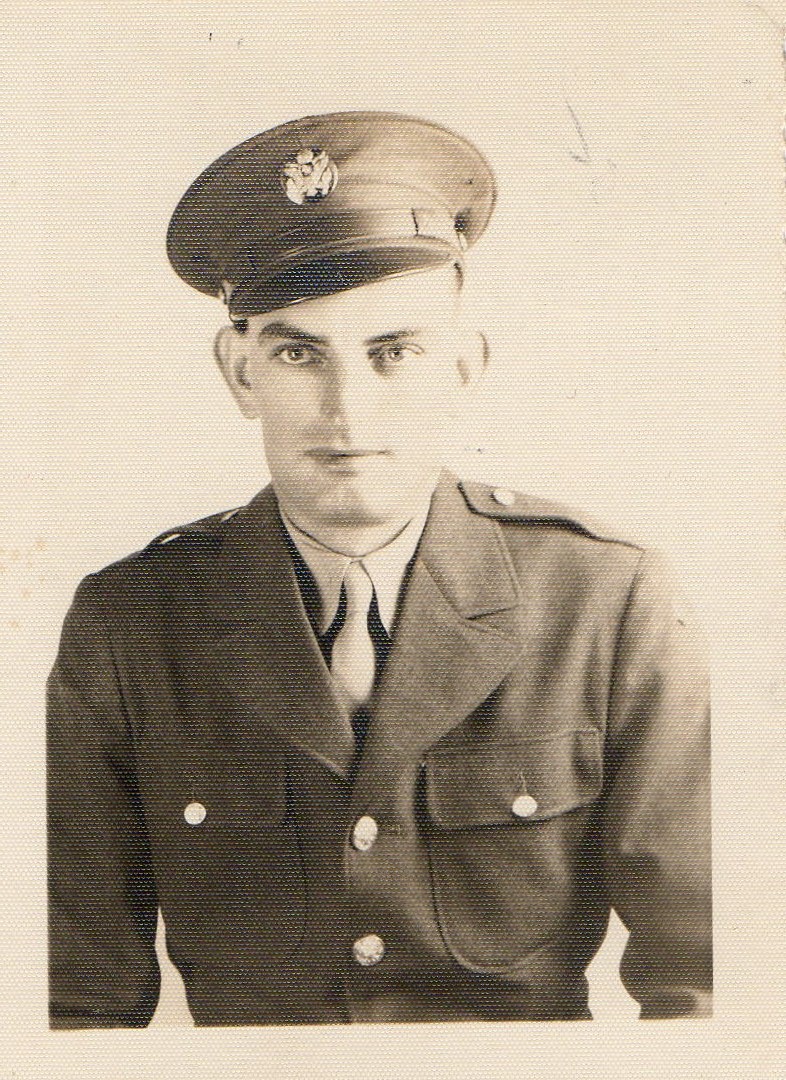
When you enlisted in the army, did you expect to go to war?
Yes
Do you think you were lucky on not going to war or would you have liked to serve overseas?
I would have like to serve overseas. I volunteered to go to Germany and even to Alaska. I volunteered twice but never got chosen; maybe it was just God's will. When I was in the Army I was a heavy duty truck driver in big Army convoys. But I always worked here in the United States, never overseas.

Was there a draft at the time when you enlisted?
Yeah there was a draft during the time I went in. I remember when I was in the army, the draftees lined up and they didn't want to be there. Some of them were older guys and they were all acting like a bunch of cry babies. Do you know what some of them did? Some of them even acted like they were crazy just to not get picked in the draft. This one man, I remember, was standing there surrounded by policemen and was acting like he was on a pretend motorcycle, making motorcycle noises like revving an engine (vroom vroom) and he like to drag his imaginary motorcycle around there. They sent him to a psychiatrist many times and then they decided to let him out. All they do is give you a bus ticket to go home and a set of clothes. When this man was leaving, somebody yelled to him "Hey, aren't you going to take your motorcycle?" and the man replied, "No, leave the son of a bitch here; somebody else can use it." People did all kinds of crazy things. When it came time for basic training, I don't know if some of them were that stupid, they didn't know their left from their right, you know like when you are marching. The top hill first sergeant would get so upset that he made them put rocks in their pockets so that they were reminded of the differenced from left and right. If they didn't know their right, he made them put rocks in their right pocket so that they were able to remember it with the rocks there.
Was the military segregated when you were serving?
Yes. When I first went in the military was still segregated. It was just starting to change because it was when President Sherman made a law where they had to integrate the military. When I went into basic training, there was some of the colored already starting to come in. All of the women and all of their services were all separate. In the Army they called them WAC's, Women's Army Corps; they had their own places where they stayed and did their basic training separately too- they weren't all together.
What is the one goal you have achieved and are most proud of in your military career?
I started as a private E1 (buck private), which is the lowest rank in the military, and I ended as a command sergeant major E9- that was a big accomplishment.

What are some of the principles you have learned from being in the military which you still practice today?
I am still very disciplined. I incorporated some of these principles into my parenting. When my boys were little, it was my idea to be strict and I think it is because of this reason that they all grew up so good. I was strict with them, but I never whipped them.

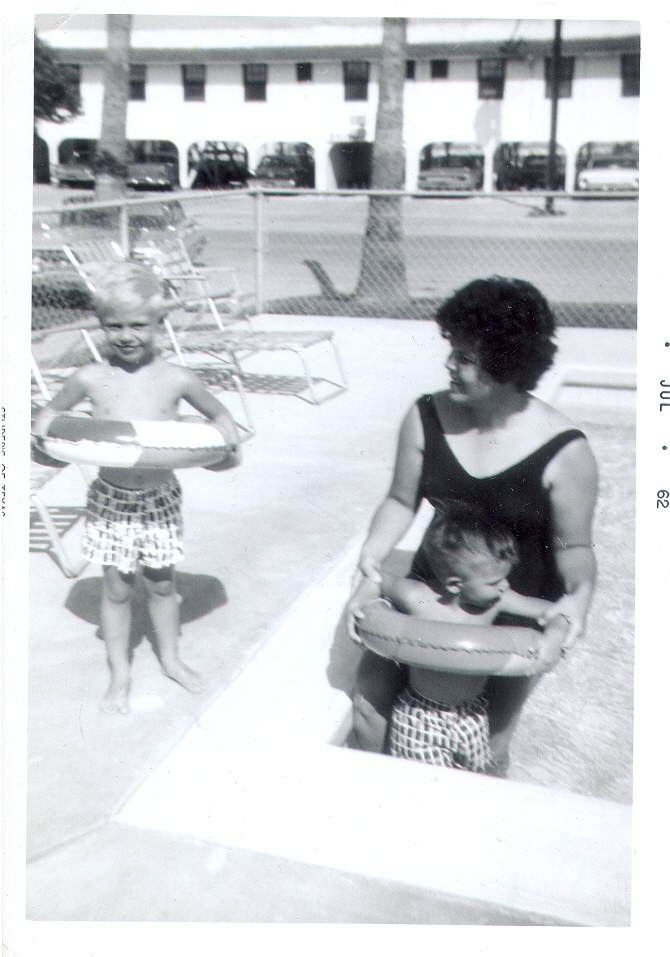
Is there anything else you would like to add to this interview
I remember another thing that was scary when I was growing up was the Cold War because of the atomic bomb; everybody was scared. The Cold War started after the Second World War ended; it was Presidents Truman and Roosevelt at that time. At school, we had to practice these safety drills for atomic bombs, similar to fire alarms which kids practice today in school. You had to get under your desk, and they would try and prepare you just in case there was an atomic bomb explosion. Another event that was really hard on me was when President Kennedy was killed. I was really upset at the time and remember being glued to the TV and news service. We all thought very highly of President Kennedy and to have him taken away so soon shocked and affected all of us. My kids, who were attending Saint Teresa's Academy at that time, had just seen him pass the day before he was killed. The president was going down S. Presa towards Brooks, passing by my kids' school, and a day later he was killed. It was a very traumatic time for us; everybody was upset and distraught with the whole situation.
